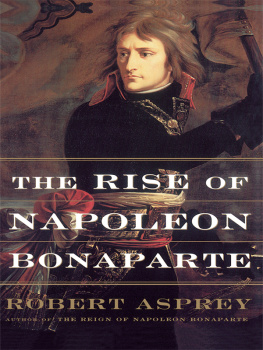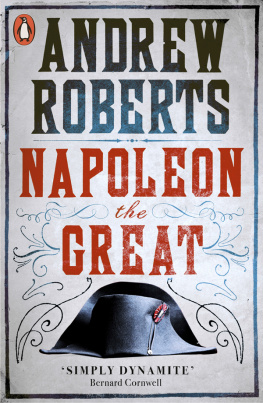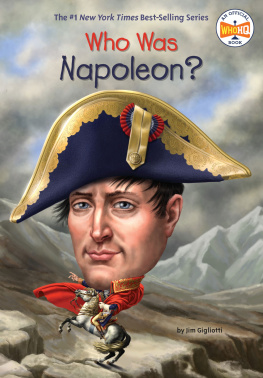Dewey Lambdin
King, Ship, and Sword
(Lewrie 16)
To"The Immortal Memory"
Therefore I cast mee by a little writing
To shewe at eye this conclusion,
For conscience and for mine acquiting
Against God and ageyne abusion,
And Cowardise, and to our enimies confusion.
For foure things our Noble sheweth to mee,
King, Ship, and Swerd, and power of the Sea.
HAKLUYT'S VOYAGES
At nobis, Pax alma, veni spicamque teneto,
profluat et pomis candidus ante sinus.
Then come to us, gracious Peace; grasp the
cornspike in thy hand, and from the bosom of thy
white robe let fruits pour out before thee.
Tibullus, Against War,
Book I, X 67-66
HMS Thermopylae, a 38-gun Fifth Rate frigate, prowled slowly off the Texel to keep a wary eye on the Dutch coast for several years a conquered "allied" power under French control, now named the Batavian Republic. It was a sullen endeavour for Thermopylae's people, for the Dutch had not much of a fleet left since the Battle of Camperdown, four years before, in 1797, when Adm. Duncan had caught them, headed for the English Channel to combine with their French masters' fleet for an invasion of Great Britain, had forced them to run for home close inshore of their own coast, where Duncan had given them the choice of wrecking on their own shoals or fighting, and had taken, sunk, or burned almost all of them. By now, the few surviving Batavian warships were slowly rotting away at their moorings, their new construction rotting on the stocks, and all their vaunting plans for a larger fleet scrapped.
Sullen, too, was the general attitude aboard Thermopylae after months of dull blockade duty, for it could not hold a candle to the heady and daring adventures of the first of the year of 1801. As the League of Armed Neutrality had readied their navies to confront the Royal Navy, it had been Thermopylae that had been ordered into the Baltic-alone!-to "smoak out" the types and numbers of ships being prepared in Danish, Swedish, and Russian harbours, to determine the thickness of the ice that kept all Baltic navies penned in port, and to ascertain how long it would be before the ice would melt and free them.
Oh, there'd also been the delivery of a pair of Russian nobles to somewhere as close as possible to St. Petersburg one of whom had tried to kill their new captain as they were being set ashore, an attempted murder right by the entry-port all over a London whore, of all things! And for certain the younger Roosky was love-sick mad, but what could be expected of foreigners, and wasn't their new captain a scrapper, though!
Out of the Baltic at last, and there'd been their own British Expeditionary squadrons under Vice-Admiral Sir Hyde Parker, and Vice-Admiral Horatio Nelson, and they'd been just in time to take part in the glorious Battle of Copenhagen and squash the Danes like so many roaches round the galley butter tubs!
All downhill from there, though; first cruising in the Baltic 'til midsummer, watching first Vice-Admiral Parker go home (in a bit of disgrace, the hands had heard-tell) then Nelson departing for his always fragile health, and, at last, a spell of re-victualling and repairs at Great Yarmouth, where the adventures had begun, and a spell of shore liberty. After that, Thermopylae had been seconded to the small North Sea Fleet to serve as a scout, doing much of a boresome much as they did this morning making her presence known under reduced sail about two leagues seaward of the shoals, and counting windmills, for all the good that Thermopylae's "people" knew.
In a thin and fine mist on this particular morning, a cold early-October rain was falling and dripping in great dollops from sails and rigging, over a grey and dingy-white-foamed sea that chopped and hissed and imparted to the frigate a slow and queasy wallowing roll. And the wind if freed, Thermopylae could cup that wind and rush like a Cambridge coach, nigh on eleven knots or better yet that wind was wasted on her twice-reefed or gathered sails. And it was a nippy wind, to boot, a raw'un out of the Nor'west, fresh from Arctic ice sheets that made nettled tars wish for their Franklin-pattern stoves to be set up on the gun-deck once again, blow warm breaths into cupped fists, and shiver under their tarred tarpaulins.
HMS Thermopylae's Second Officer, Lt. James Fox, let out a pleased sigh as a ship's boy turned the half-hour glass, then slowly struck Eight Bells up by the forecastle. His watch was done, and hot tea or coffee awaited him in the gun-room below, along with his breakfast. Lt. Fox clapped gloved hands together in joy as his replacement, his old chum Lt. Dick Farley, stepped from the lee side of the quarterdeck to amidships before the double-helm drum and the binnacle cabinet to assume command of the Forenoon Watch.
"A thouroughly miserable day, and I wish ye joy of it, Dick," Lt. Fox said with a grin and a roll of his eyes.
"Worse things happen at sea, Jemmy," Lt. Farley replied as he formally doffed his hat, a second-best and much-battered old thing with its gilt lace gone verdigris green. Fox's wasn't a whit better.
"Just thinking that, in point of fact," Lt. Fox quipped. "So, the usual wind's still Nor'westerly, we're beam-reaching, as anyone can clearly see, course Nor'East, half East, and making six agonisingly slow knots. What's for breakfast?"
"Scrambled eggs, cheese, and biscuit, speaking of usual," Lt. Farley replied. "Has the captain determined whether we'll exercise at the great-guns this morning?"
"Hasn't said yet," Lt. Fox replied, letting a yawn escape him. "Damme, I was hoping for hot porridge. Do we drill on the artillery, I'd prefer a steadier point of sail."
"Aye, this roll'd be a bugger," Lt. Farley agreed.
"Well, I leave you to it, Dick," Fox said, cheering up.
"I relieve you, sir," Lt. Farley said with another doff of his hat, and the Second Officer, along with his Midshipmen of the Watch, and the Starboard Watch of the quarterdeck and Afterguard, were scrambling below, some to their breakfasts, some to the uncertain warmth of the gun-deck.
Right aft, and just below the quarterdeck in the great-cabins, Captain Alan Lewrie was shaving or trying to. It was not a chore comfortably, or safely, done in such a wallowing, rolling sea-way, in the small mirror of his wash-hand stand with a straight razor. Lewrie had to brace himself like a runner frozen in mid-stride, his left leg behind him and his right in front, balancing from one to the other as Thermopylae heaved from beam to beam like a metronome, about fifteen degrees or better to each roll. He could have sat himself down in a chair, but would be without the mirror, or the small enamelled basin that held his single pint of water ration for washing daily.
"Get out of it, ye bloody little!" Lewrie snapped as Chalky, the younger and spryer of his cats, leaped atop the wash-hand stand for the third time, fascinated in equal measure by the lapping water in the basin and his reflection in the mirror. "Shoo! Scat! Pettus!"
"Sir?" his cabin steward replied, carefully hiding his smile.
"Isn't there some amusement ye could offer him?" Lewrie griped.
"I'll take him, sir," Pettus offered, coming to scoop up the white and grey-splotched cat and bear him away, spraddled atop his forearm. An instant later, and it was Toulon, the bigger and older (and clumsier) black-and-white torn that wished to see what had taken Chalky's attention, but his leap was just a tad off (blame it on the roll) and he went tumbling back to the deck, with the hand towel in his paws.




